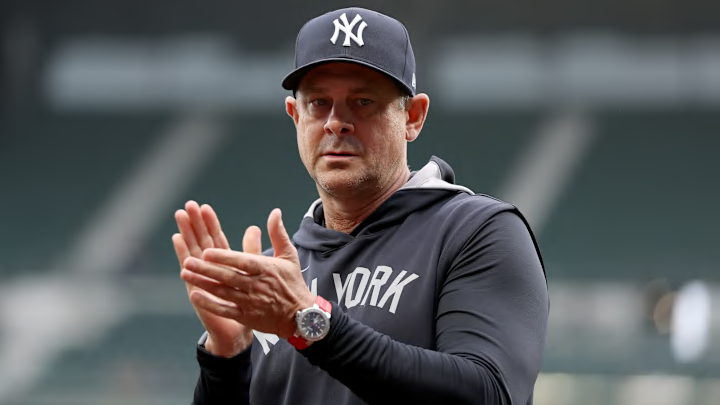It's never been more difficult to be an MLB manager, and, concurrently, the position has never been looked upon with more derision. When a team loses, then loses again, then those losses coagulate into a slump, the manager is singled out and blamed. Scratch that — it doesn't take a streak. In the era of social media talking heads, every loss in a 162-game season is treated like Week 16 with the AFC North on the line. Baseball wants to be in ~the conversation~, and the conversation it's wormed its way into is an unpleasant one.
But when a baseball team surges, stringing wins together, the manager doesn't get the credit. It's the process that triumphs. It's the front office's grand plan. It's the pitching lab. It's overseas investments. Scott Miller's new book Skipper, which released this week, argues that the job of a manager now involves answering for thousands of decisions made at the behest of multiple parties and algorithms, selling a conglomeration of ideas daily, win or lose. And while a dugout leader may never again be able to motivate his players by plucking names out of a hat and creating a randomized lineup, a la Billy Martin, this modern-day role of a steady hand in the locker room and a steward of the growing "brand" to the general public will always matter.
When Martin was managing, the idea of Reggie Jackson making $3 million per year was absurdly novel; it was the diminutive Yankees skipper's job to push Jackson's buttons appropriately while staying deferential to his star power in spotlit moments. These days, every manager has 12 Reggie Jacksons on the roster making between three and 12 times the cost. Some of those high-powered individuals are in the dugout daily, plying their craft for millions of viewers. Some are behind the scenes, and will never — must never — be known.
It's the manager's job to cover for all of them and answer to a slice of them. These days, from fans to scribes to skippers, everyone knows too much. A manager must act forcefully, but not so forcefully that he breaks rank and his behavior leaks. A human happy medium has never been more essential, or tougher to find.
A manager will never be beloved without the victories to match. And a manager cannot win without a support system that aligns with his will. He is a spokesman and a punching bag. He must shrug off being micromanaged and watch his microaggressions. He must fine-tune his impulse control as the jockey in the race for innovation — or is he the horse?
For more news and rumors, check out MLB Insider Robert Murray’s work on The Baseball Insiders podcast, subscribe to The Moonshot, our weekly MLB newsletter, and join the discord to get the inside scoop during the MLB season.
Being an MLB manager still matters, and has never been tougher than its current iteration
Certain managerial hires from 30 years ago — Joe Torre, Terry Francona — would be pilloried in the modern game before they ever reached the dugout. As Skipper notes, patience has only waned as time has passed. That's triply true for African-American coaches, who are given razor-thin margins and minuscule leashes. Miller gets Cito Gaston and Dusty Baker to weigh in; Gaston, who managed the Blue Jays to back-to-back World Series in 1992-93, was fired by 1997 and never managed for another MLB franchise again (though he was rehired by the Jays as the tide was turning from 2008-2010).
Dave Roberts, the book's archetype for the modern manager, was lambasted every October from 2016 to 2023. His only title in that span, during the pandemic-shortened 2020 season, was derided and devalued. But you know what allows you to get roasted every postseason? Making every postseason. His 2024 championship was a culmination of so many criticisms and disparate threads behind the scenes, which he deftly tied in knots and repackaged to the general public.
Roberts, a master spokesman, willing steward and collaborative force, is the kind of genuine human who can handle the modern pull of this impossible position. He is the embodiment of the reason this position will never go out of style. And Skipper makes certain to view Roberts, and many others, from as many sides as it takes to tell their story.
